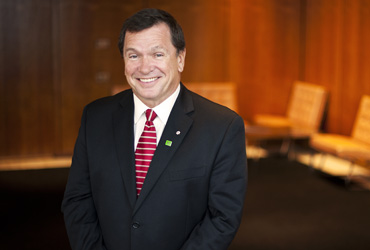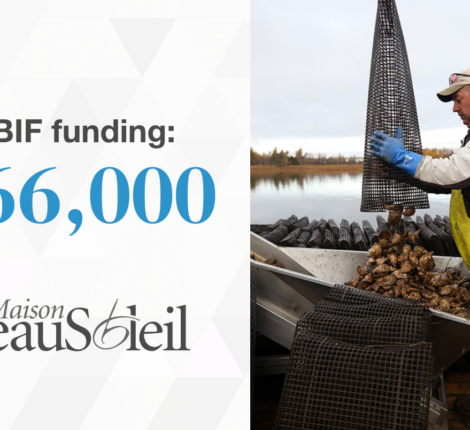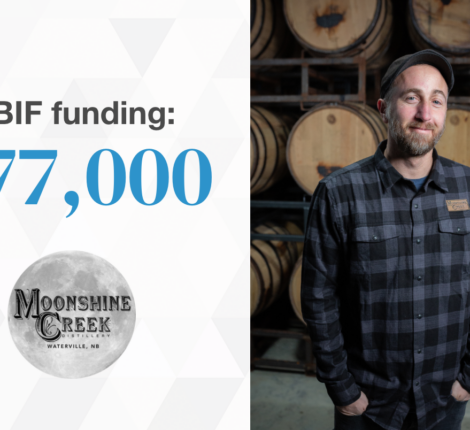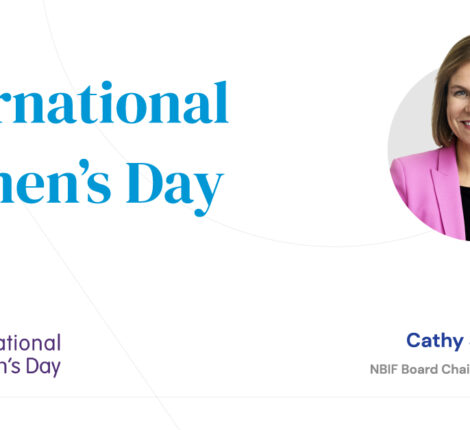- November 5, 2015
- Innovation Insights
- Comments : 0
McKenna Sets Mood For NB Economy

November 5, 2015
In a speech at the Atlantic Provinces Economic Council conference today, the former New Brunswick premier says Atlantic Canada is facing an extinction event if it doesn’t do something collective about innovation, demographics, and resource collaboration. Since Atlantic Canada is a small place with a comparatively small population, it no longer makes sense in the modern economy to spend so much money on the same things. With a declining population, we are facing lower transfer payments based on population, less HST, and more. Plus, richer provinces across the provinces are also down, and Atlantic Canada should be considered the “canary in the mine”.
“There’s never been a more perfect political alignment for us and we have to grab the rope,” he said, “it’s a once in a lifetime opportunity to change our region.”
McKenna continued with a list of changes he thinks are imperative for the region to address with the federal government’s support – and in this case, he said, for moral and political support more than financial support. “There are a lot of things the federal government can help the region do and change without costing them a nickel.”
Innovation – Traditional growth centres used to grow out of geographic advantage, like ports, resource rich areas, strategic transportation portals and more. Today, this has completely changed and Atlantic Canada is so far behind you can barely see it. Today, it is centres of knowledge with no correlation to natural resources, like Waterloo, that are the economic leaders. All over the world, the most successful jurisdictions are now comprised of “citizens towns” that have universities, fast broadband, entrepreneurship and innovation. Once have-not countries without resources are surpassing us out of necessity, such as Japan and Israel, where natural resources are very low, yet each are economic powerhouses when it comes to what really sustains economies now – people and innovation.
When it comes to Atlantic Canada, universities have to be the vanguards of innovation. Universities need to get behind the government and the government needs to get behind universities with the confirmed belief that knowledge is the source of sustainable economies today.
Healthcare- The best idea for increasing healthcare dollars in Atlantic Canada is to increase healthcare innovation. “Our technology is so antiquated and ineffective that the private sector would go bankrupt with such an substandard system,” McKenna said, “the problem is that the system is always running so skinny is because there’s no money available for innovation.” McKenna says the federal government needs to make the region a virtual laboratory for money-saving innovation in healthcare technology. “They did it for Quebec’s aerospace industry, why not healthcare here,” McKenna said, “the advantages will affect healthcare quality and costs across the entire country.” Rationalizing health services between the Atlantic Provinces will produce and enormous economic change for both taxpayers and could create hundreds of new businesses, he said. “We should consolidate,” he says, “we don’t have enough money alone, so why are we all throwing money over the side of the boat wasting it on things we all do the same but separately.”
Energy – we have great potential for a greener energy economy in Atlantic Canada, but we need an active partner at the federal government level. Money could be saved through shared participation in the export market. With federal leadership, he said we should be able to be a green leader. A new nuclear station in LePreau. Development of Gull Island. The energy economy in Atlantic Canada has a bigger impact on the national economy than people realize. “We need the Government of Canada to get behind the energies pipeline that will create thousands of jobs, and collaborate to get natural gas to LNG sites in Atlantic Canada,” McKenna said, “I was in Washington yesterday and it was said that ‘the best place in North America to have an LNG facility is probably Saint John, New Brunswick'”.
Demographic challenge – McKenna said that we need more people in our region, and that without a fix we are going to continue to decline. “We don’t need money, we need leadership,” he said, “we are going to go from serious to disastrous.” One of our biggest challenges is our seasonal economy and keeping people here. “Even though we have some of the highest unemployment, we are short of the workers we need,” he said, “the provinces and employers are in a huge bind. We don’t need federal money, we need people and, for those who come here year after year through the temporary foreign worker program should be given a path to citizenship.” He continued to say that immigrants go where immigrants are. Today’s federal programs are designed to immigrate people to Toronto, Montreal and Vancouver. Immigrants go where they are, and there’s nothing to help this part of the country. “Immigrants should be required to live in an assigned area for at least three years before they can have mobility rights,” he said, “we need to convince people that immigrants don’t come here to take away jobs and it’s high unemployment areas where we need them the most.” He continued by saying that many immigrants often come to Canada out of desperation, and from places where if you don’t work you don’t eat, and that we do not have that culture. “We need their worldliness, their culture; they give energy to our country,” McKenna said.
“Shame on us if we can’t bite the bullet and come together and cooperate between governments in Atlantic Canada”
“Shame on us if we can’t get over of our parochial issues.”
If we want to compete we have to be collaborative, nimble and better organized,” McKenna warned, “surely we have it in us to remove the barriers between us.”
McKenna concluded his speech by reminding the audience that Canada has free trade agreements across North America, with the Eurozone and the Pacific Rim, but not between our own provinces, and that it’s time to get up to speed with the rest of the world when it comes to trade between our own jurisdictions.
“The good news is that all of the political forces we need are aligned,” he said, “we can make a dramatic move. We are being thrown a life line. Let’s grab the rope.”
To continue the conversation about what New Brunswick can do to create a new and positive future, NBIF and Conference Board of Canada will present its Innovation and Economic Outlook for New Brunsiwck on December 1, 2015 at the Crowne Plaza Fredericton. Email us to receive a 20% discount to attend.


